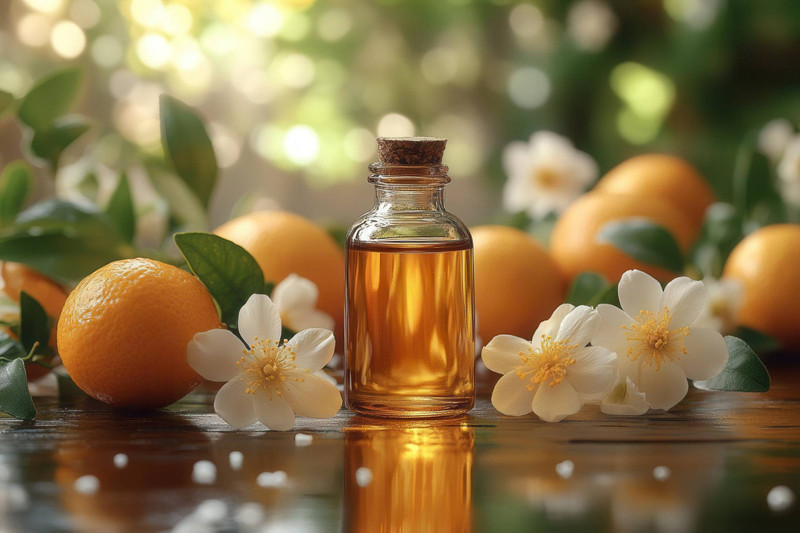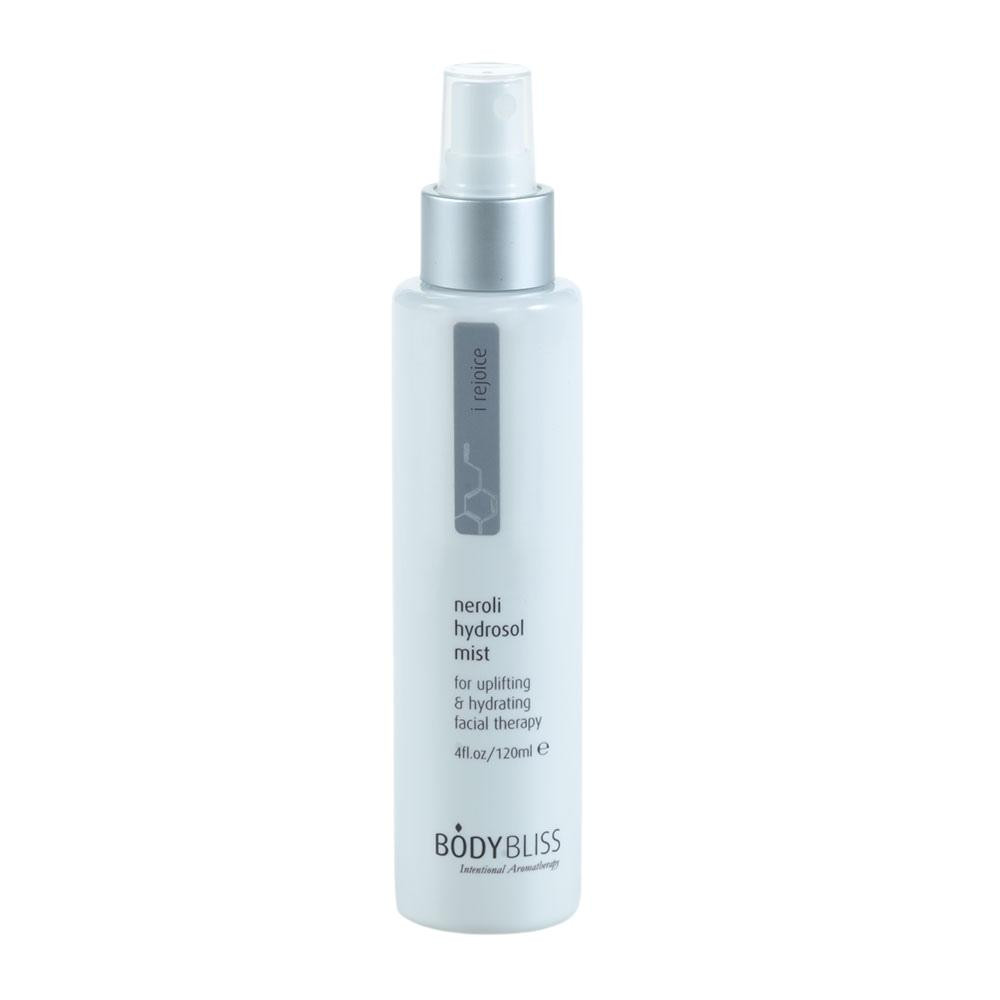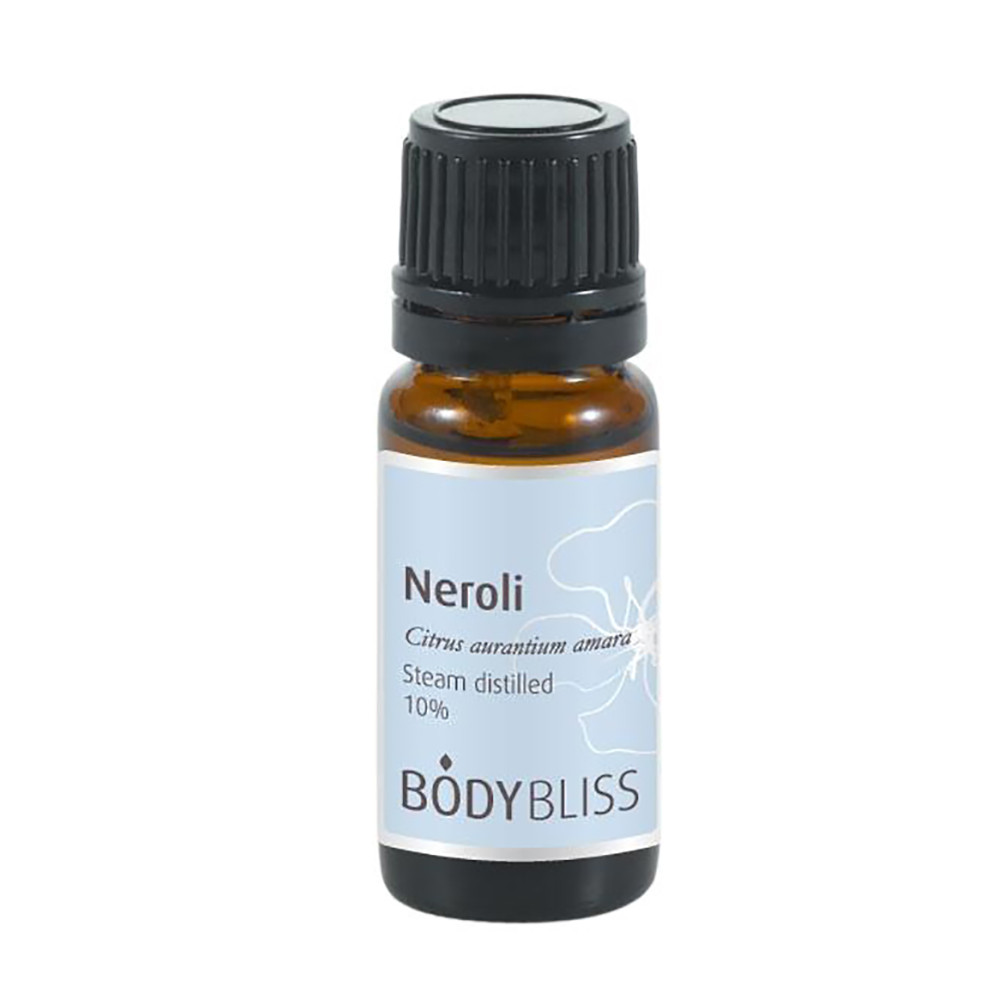Essential Oil of the Month: Neroli
Neroli: (Citrus aurantium var. amara)
“Neroli touches the realms of the angels and anyone who uses it is brushed with the light of angels’ wings.”
- Valerie Ann Worwood, Fragrant Heavens
The captivatingly delicate yet complex and sophisticated scent of Neroli (aka Orange Blossom) offers its serene sensuality and subtle citrusy freshness with a floral, honeyed nuance. For the dreamer and the seeker, Neroli is not just a fragrance, it is a mood, a moment, a whisper of morning dew on its precious white blossoms.
“Neroli is where the sacred meets the sensual, a scent that calms the soul and awakens the heart.” - Unknown
Neroli oil is distilled from the fragile white blossoms of the bitter orange tree. It is one of the few plants that yields three distinct essential oils from its different parts: Neroli from its blossoms, bitter orange oil from the peel and petitgrain oil from the leaves and twigs.
Neroli blossoms must be handpicked at dawn, just as they open, to preserve their delicate aroma compounds. The blossoms contain the highest concentration of aromatic compounds in the cool early hours before the sun evaporates their volatile oils. Hand picking at dawn ensures the petals are fresh, moist, and undamaged, which is essential for producing the most exquisite oil through steam distillation. The essential oil is extremely sensitive to heat and oxidation, and the blossoms are too fragile for mechanical harvesting.

This labor-intensive process, combined with the fact that it takes around 220 pounds of flowers to produce 2.5 ounces of Neroli essential oil, or 1,000 kilograms of blossoms to yield just 1 kilogram, makes Neroli one of the most precious oils in aromatherapy and perfumery. In addition, the trees typically bloom only once a year in spring for a mere 2 to 4 weeks, making the process time-sensitive and supply limited.
It’s important to note that orange blossom water (or orange flower water) differs from Neroli essential oil in that it is a hydrosol (aka floral water), a byproduct of the distillation process, not the concentrated essential oil. If a hydrosol is your goal, be sure that you are getting hydrosol and not the essential oil added to water. Hydrosols contain tiny amounts of essential oil plus water-soluble compounds not found in the essential oil alone which make it especially beneficial for skincare. They are gentle, balanced, and safe to use undiluted on skin and are often used for facial toners, wound care, room sprays, and even can be used diluted for emotional support in pets by spraying bedding. (Avoid direct application on animals and always check with your veterinarian before using. Cats in particular are sensitive creatures).

The Elegant History of Neroli Essential Oil
Neroli essential oil has a rich and romantic history dating back centuries. Its name originates from Princess Anna Maria de La Tremoille of Nerola, Italy who, in the 17th century, famously perfumed her gloves and bathwater with orange blossom oil. The scent became so beloved in aristocratic circles that it took on the name "neroli."
Long before this, ancient civilizations like the Egyptians and Persians used orange blossom in cosmetics, perfumes and for ceremonial purification rituals.
With the arrival of Arab distillation techniques in Europe, Neroli gained popularity for both its many benefits and aromatic qualities, influencing its use along with other essential oils in Western perfumery and natural remedies.
In Victorian times, Neroli became a symbol of purity and love. Brides wore orange blossom (Neroli) garlands and used the oil to soothe nerves on their wedding day, continuing a tradition that dates back to ancient Rome.
Paradoxically, refined yet seductive, Neroli water once perfumed the gloves of Italian princesses and the boudoirs of Parisian courtesans. The common myth is that in Victorian Italy and France, high-ranking courtesans used perfumes and scented waters (particularly Neroli) not only for their symbolic purity and to entice lovers, but also to mask body odors, as hygiene practices were limited. This duality made it appealing to women navigating both the erotic and social spheres, such as courtesans who were educated and cultured, yet lived on the fringes of respectability.
Neroli was often the choice of women who danced between worlds. From new brides to courtesans and high-born mistresses, Neroli offered its calming yet sensual essence and spellbinding fragrance to perfume the air, mist upon their skin, or scent their bath water.
By the 18th century, Neroli had found its way into the famous Eau de Cologne, valued not only for its delicate floral fragrance but also for its supposed protective abilities, making it both fashionable and functional during eras plagued by poor sanitation.
From royal courts to modern aromatherapy, Neroli’s legacy is one of luxury, tranquility, seduction and timeless romance.
Today, Neroli is cherished for its compelling scent where beauty meets soul. Its fragrant essence is often described as a bridge between the sacred and the sensual, rich in both emotional and energetic depth, transforming sorrow into tranquility, loneliness into connection, and unrest into splendid serenity.
Transformative Ways to Use Neroli in Your Self-Care Regime:
As a Facial Mist or Toner: Neroli hydrosol calms irritation, balances oil, and hydrates skin.
Face creams: Neroli essential oil diluted in your favorite face cream helps regenerate skin cells and minimize the appearance of fine lines.
Perfume alternative: Its soft, floral, citrusy scent makes Neroli a perfect subtle, non-toxic personal perfume.
For Emotional & Energetic Use:
Aromatherapy diffuser: Neroli’s alluring aroma creates a calming, uplifting atmosphere, especially useful at bedtime and to support emotional balance. Use 3 to 5 drops in your diffuser to allow the tender scent of Neroli to drift through your space, inviting a sense of gentle peace and sensual beauty.
Anointing oil or pulse-point perfume: Use three drops of Neroli essential oil in 1/3 ounce (10ml) of jojoba oil dabbed on wrists or heart chakra to promote a sense of quiet stillness, spirituality, and emotional harmony. May be combined with a drop of the “Oil of Love,” Rose Maroc.
Neroli is Especially Beneficial for:
- Moments of transition, grief, or rebirth
- Times when we need both comfort and confidence
- Creating an aura of refined sensuality
For Hydrosols and Floral Waters:
- Aways use pure, preservative-free hydrosols
- Store in the fridge and use within 6–12 months
- Always consult a veterinarian when considering using hydrosols or essential oils around animals
PRECAUTIONS: Though Neroli essential oil is generally considered safe, as with all essential oils, proper dilution is important before use and always consult your healthcare professional if you are on medication.






